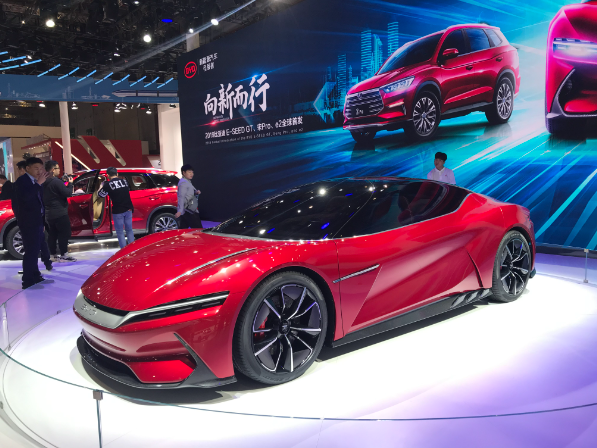
In the US, American auto reigns supreme. Ford, Chevy, and Chrysler are the heavyweights that have seemed for many years to be immortal. In other places around the world, however, a new story is beginning to play out. The international sales of American vehicles are starting to decline, and another world superpower is ready to replace the U.S. A previously dormant international player in the auto industry, China, is starting to take over the automotive world.
China is posing an ever-growing threat to the American auto industry. The U.S. has fallen from 4th to 6th in vehicle exports, behind both Mexico and South Korea;while the U.S. has slowed down vehicle exports, China has started to rise as an international contender. The transition from traditional gas-powered internal combustion engine (ICE) cars to electric vehicles (EV), has started to favor Chinese automakers. Apart from export volume, Chinese manufacturers have pushed the limit for both vehicle production and pricing, something other global automakers like GM and Ford Motor have struggled to do.
In 2019, faced with a company struggling to stay afloat, Elon Musk and Tesla turned to China, a country with more lenient laws that made factories easier to build and maintain. This helped Tesla stay afloat, but they weren’t the only startup to take advantage. Chinese-based BYD has quickly risen to success, riding off the back of the electric vehicle wave. Last year, BYD surpassed Tesla in worldwide EV sales, and BYD and other Chinese companies like NIO and XPeng have made rapid advances in battery technology, improving charging speed and energy density. China has spent billions of dollars on research, development and EV infrastructure, promising plans to build 1.2 million public charging stations by 2025.
BYD isn’t just building cars. The company also manufactures lithium batteries, solar modules, electric-powered buses, trucks, and trains, as well as AI and transportation software. According to SNE Research, BYD has more than 10% of the global energy storage system market, and in January signed a contract to supply one of the largest energy storage projects in Chile. The company has also privately told investors that it is controlling as much as 30% of the US utility-scale solar market.
Although BYD may be starting to pick up steam internationally, there are still barriers to the company ever becoming successful in the US. Chinese automakers have traditionally struggled to gain traction in the US, and only five cars sold in the US are built in China (The Lincoln Nautilus, Buick Envision, Volvo S90, Polestar 1, and Polestar 2). One of the largest obstacles to a Chinese company becoming successful in the US is protectionist laws and tariffs. Former president Donald Trump has predicted a “bloodbath” for the US auto industry if he loses the election this November and promised tariffs against Chinese automakers, stating “We’re going to put a 100% tariff on every single car that comes across the line, and you’re not to going to be able to sell those cars if I get elected.” The Inflation Reduction Act of 2022 placed battery sourcing and manufacturing requirements in place to encourage domestic EV production, and according to Karl Bruer, executive analyst at iSeeCars.com, “The United Auto Workers and the U.S. auto industry have enough political power that no matter who is in the oval office, there will be an effort to protect it.”
The most likely path that BYD or other Chinese companies could take to selling cars in the US would be similar to the way Japanese automakers like Toyota and Hyundai entered the US, selling their most affordable models before moving up to higher-end models. This process, however, took Japanese manufacturers around 50 years before reaching mainstream relevance. As of now, it seems unlikely that BYD will take a stab at the American market anytime soon, but the threat to the American auto industry remains.
